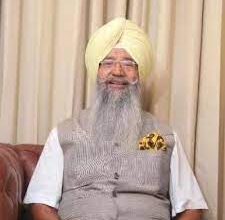“Yoga is a journey from the self, through the self, to the self”

Alishaan Narula
What is Yoga?
When we read/hear about the word “Yoga”, what comes to our mind immediately? … Isn’t it mainly exotic poses, which we see on various social media sites and always wonder with awe how can they do it?
We then quickly conclude that “it’s not my cup of tea”.
Actually speaking, Yoga is much more than exotic poses; it is a term with a wide meaning. The literal meaning of yoga in Sanskrit is “Yuj” which means union.
It is often seen or defined as the union of Mind, Body & Soul. The Mind and body are very closely interconnected; whatever happens in our mind, influences our body too.
Yoga is also about finding oneself through self-realisation or self discovery.
Now, we may wonder, with questions like –
“how can we unite somethings that are already connected?”
“What is the union of mind, body and soul? Will I be able to do it?”
“I already know who I am, what more is there to find?”
Yoga – a practice for self discovery
The truth is that, while the mind and body connect and an understanding of oneself are all there in the background, we aren’t really being fully aware of these and taking advantage of them.
Practicising Yoga enables us to become fully aware of the internal connects and our own self.
Starting the Yoga Journey
Thus Yoga actually is about finding oneself and then connecting with a higher consciousness. For instance, imagine the higher consciousness as a light, which is spread all over the universe but you are wearing glasses which are dirty and foggy.
Will you be able to see the light clearly unless you clean your glasses? Here your glasses are nothing but your mind (Chit), which is full of impurities, mental affliction, thoughts and impressions (Sanskara).
All these are acting as pollutants, not allowing you to see the light. But when you start cleaning the glasses by practicing pranayama, mudras, asanas and meditation…you will start getting a clear vision, which will allow your inner consciousness to connect with the higher consciousness.
It is very rightly mentioned in Bhagwad Gita – “Yoga is a journey from the self, through the self, to the self”.
How should we meditate?
Meditation is a mindfulness practice. The practise of staying present in a moment, without getting distracted.
Before we dive deep into the topic of ‘How should we meditate?’
We must know, ‘Why should we meditate?’Why is meditation becoming so popular in today’s fast-paced world?How can something as simple as sitting down and doing nothing have so much value in it?
The simplest answer is We should meditate to spend some time only with ourselves, without distractions, to understand ourselves better.
We should meditate to watch ourselves, or better put, observe ourselves.Observe our thoughts, actions, and feelings.Just pure observation, no judgements.If you feel terrible, just observe the feeling and let it go, but we can barely stay away from coming to conclusions that is why so many of us find “meditation” so hard, scary, and also boring.
So how do you meditate if you can’t meditate?If you can’t “meditate” you can try something simpler “thinki-tate”.You select a topic or a problem to which you want answers or to which you want to learn more, and you think deeply about it constructively, solving it or learning from it.This is how you can slowly get into meditation.
When you master this art of staying present when you are doing something, you will master the art of staying present while doing nothing.
And last but not the least, Meditate daily.



